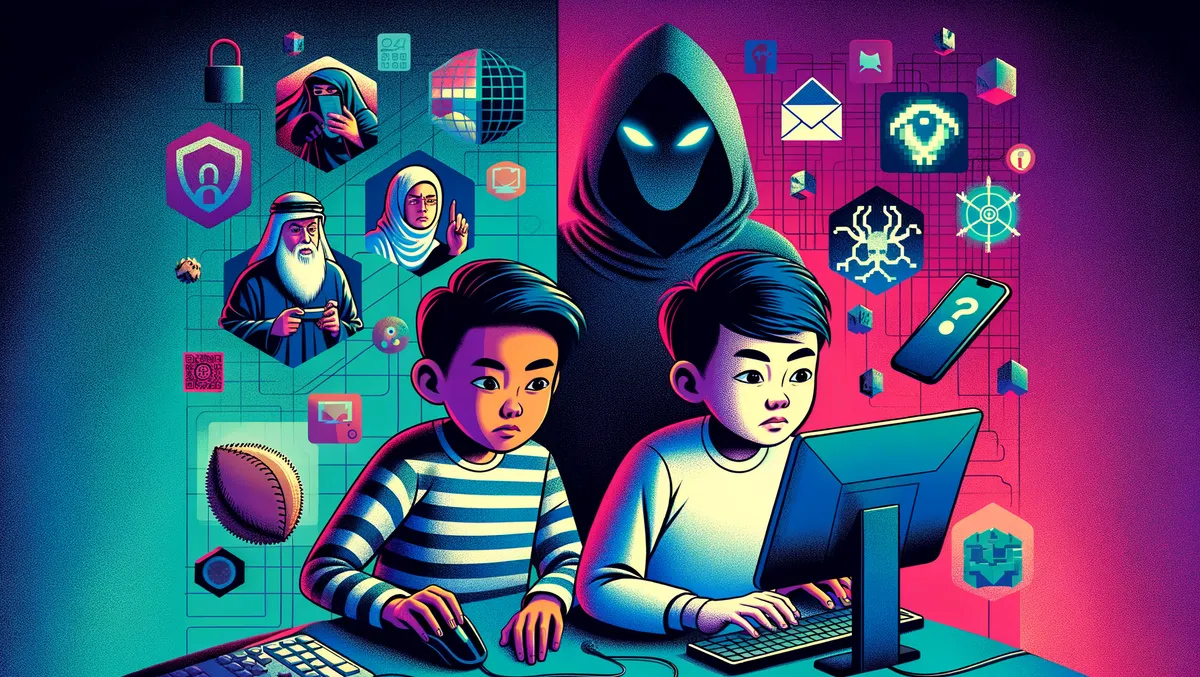
Kaspersky warns of elevated child cybersecurity risks in 2024
In 2024, parents and guardians may need to be on higher alert regarding the cybersecurity challenges facing their children, warns global cybersecurity experts at Kaspersky.
Due to the widespread use of smartphones and tablets by children, new threats have been predicted including an increase in non-age-appropriate content generated by artificial intelligence (AI), escalating malicious attacks on child gamers, and young users inadvertently downloading malicious copies of unavailable apps.
AI technology is more frequently being used by children, with a United Nations study suggesting about 80% of young people interact with AI multiple times a day. Dangers can present through apps that modify uploaded images as it is unclear what databases these pictures are stored within and further used. AI chatbots are another potential source of concern as they can provide age-inappropriate content when prompted.
A trend worrying experts is the surge in attacks by malicious actors on young gamers. The exploitation of trust is a key method by cybercriminals, who often entice young players with gifts or promises of friendship before persuading them to click on phishing links. These malicious files can be disguised as game mods and lead to grooming or the theft of personal information.
The growth of the FinTech sector for young users also signifies new threats to cybersecurity. With banks creating tailor-made services, including banking cards, for children as young as 12, financially-motivated cybercriminals have new avenues for scams. Social engineering techniques can be used to pose as peers, prompting children to share card details or make money transfers.
Kaspersky also highlights a rise in smart home threat cases targeting children. Without proper preventive measures put in place by manufacturers, smart home devices can potentially be exploited by cybercriminals. Vulnerabilities extend beyond device hacking, however. The potential risks of financial data loss or even physical attack are significant if a child is contacted by a cybercriminal through a smart home device and manipulated into sharing sensitive information such as their parents' credit card number.
Still, as children mature, respecting their online space becomes paramount. Andrey Sidenko, security and privacy expert at Kaspersky, explains the delicacy of this issue. He clarifies, "When a parent firmly communicates the intent to install a parenting digital app on a device, not all kids will take it calmly. This is why parents now require the skill to discuss their offspring's online experience and the importance of parenting digital apps for online safety while respecting personal space."
Other issues lie in children eager to download apps that are unavailable in their country, often resulting in unwittingly downloading malicious copies. These fake applications remain a danger despite children sourcing them from official app stores. Over 190 apps infected with the 'Harly Trojan' signed up users for paid services without their knowledge, as Kaspersky researchers found between 2020 and 2022.
To mitigate these risks, Kaspersky advises parents to stay aware of these threats, actively monitor and communicate about their children's online activities, and enforce rigid safety guidelines.
Various tools, such as the 'Kaspersky Cybersecurity Alphabet' book, are available to educate children about the fundamentals of cybersecurity. Digital protection software is also recommended for their devices, with the digital parenting app 'Safe Kids' offering a comprehensive solution to safeguard children against growing cyber threats.


